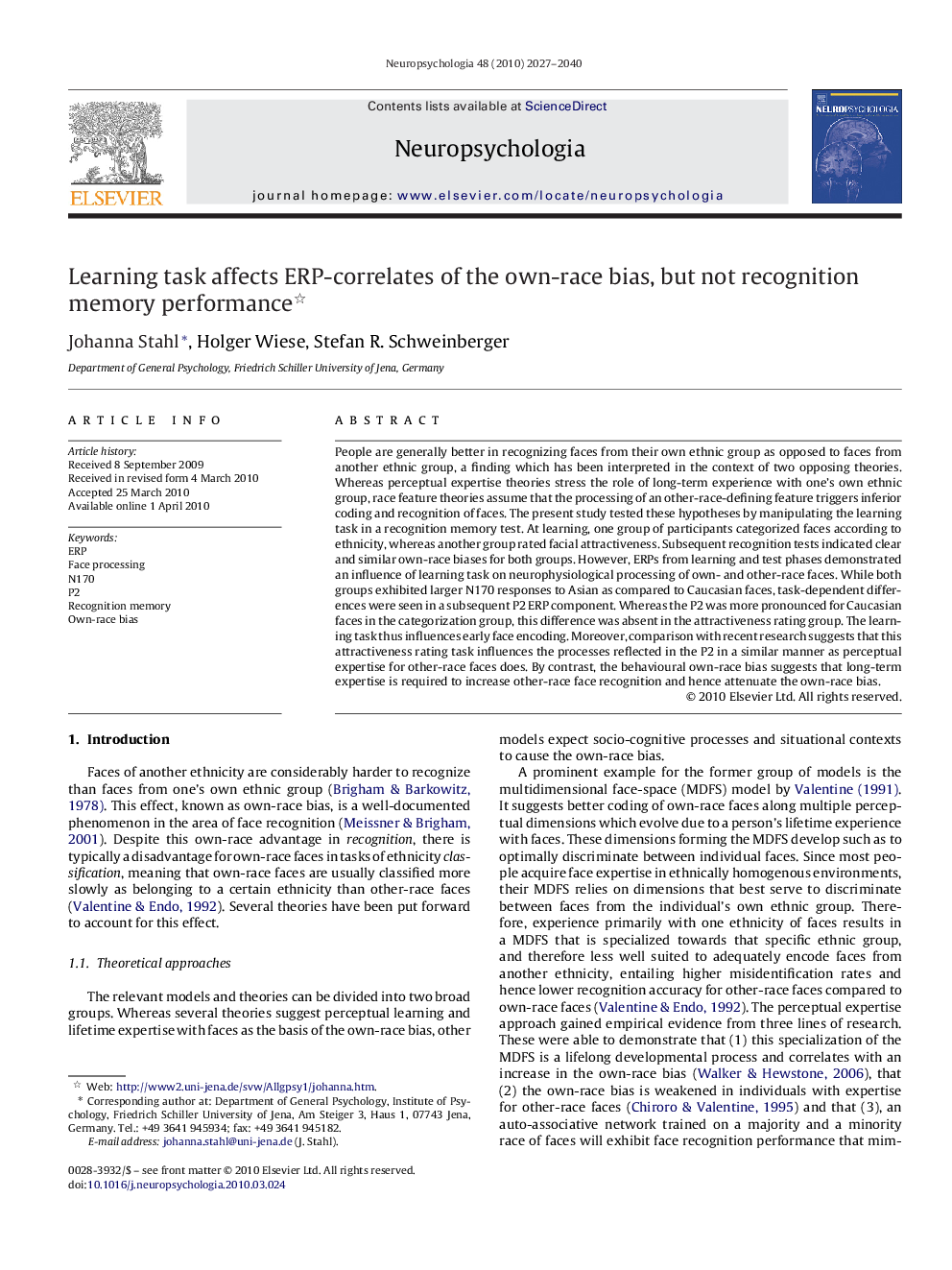| Article ID | Journal | Published Year | Pages | File Type |
|---|---|---|---|---|
| 944987 | Neuropsychologia | 2010 | 14 Pages |
People are generally better in recognizing faces from their own ethnic group as opposed to faces from another ethnic group, a finding which has been interpreted in the context of two opposing theories. Whereas perceptual expertise theories stress the role of long-term experience with one's own ethnic group, race feature theories assume that the processing of an other-race-defining feature triggers inferior coding and recognition of faces. The present study tested these hypotheses by manipulating the learning task in a recognition memory test. At learning, one group of participants categorized faces according to ethnicity, whereas another group rated facial attractiveness. Subsequent recognition tests indicated clear and similar own-race biases for both groups. However, ERPs from learning and test phases demonstrated an influence of learning task on neurophysiological processing of own- and other-race faces. While both groups exhibited larger N170 responses to Asian as compared to Caucasian faces, task-dependent differences were seen in a subsequent P2 ERP component. Whereas the P2 was more pronounced for Caucasian faces in the categorization group, this difference was absent in the attractiveness rating group. The learning task thus influences early face encoding. Moreover, comparison with recent research suggests that this attractiveness rating task influences the processes reflected in the P2 in a similar manner as perceptual expertise for other-race faces does. By contrast, the behavioural own-race bias suggests that long-term expertise is required to increase other-race face recognition and hence attenuate the own-race bias.
